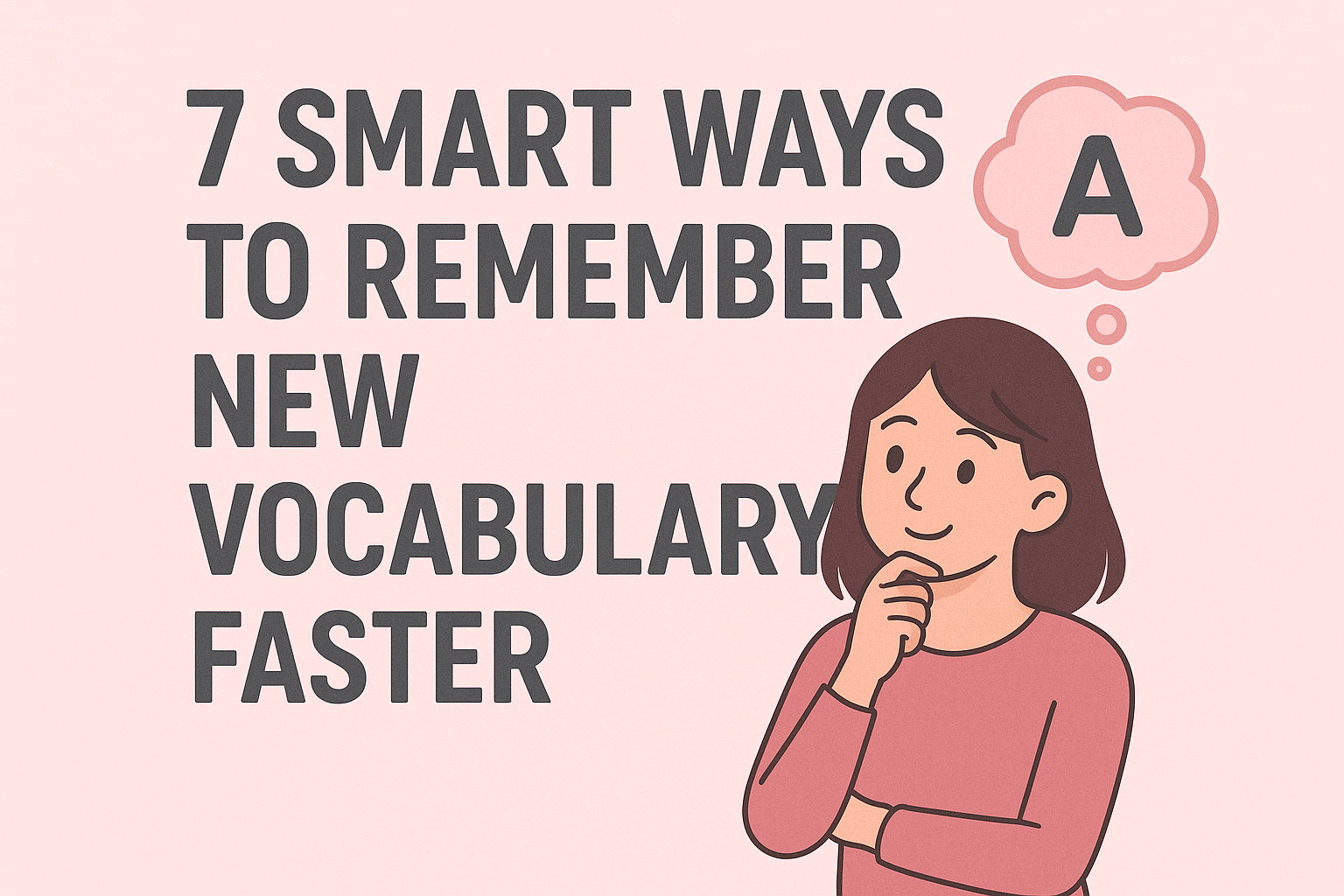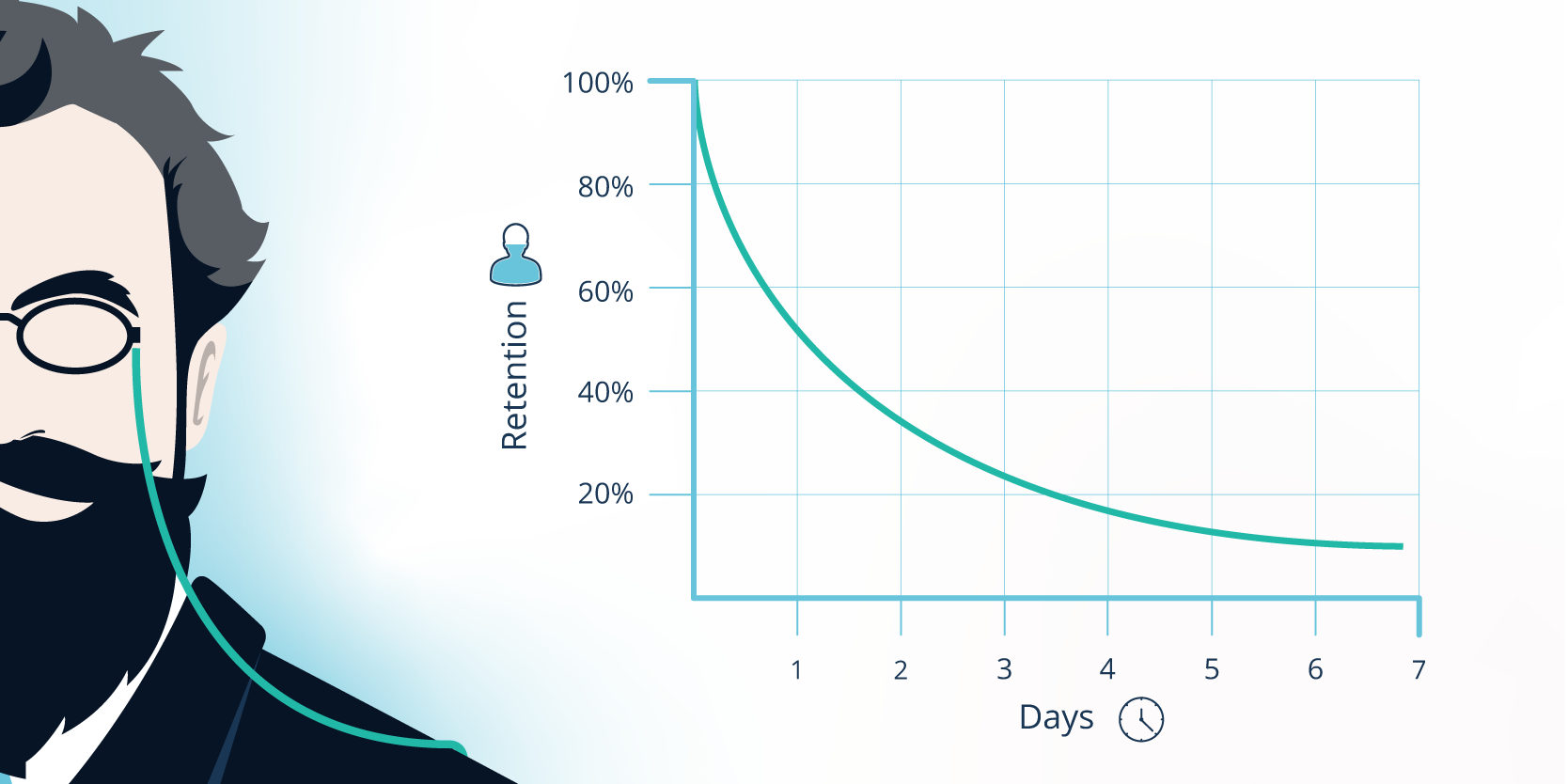
7 Smart Ways to Remember New Vocabulary Faster
October 25, 2025
You learn a new word today... and forget it tomorrow. Sounds familiar? Everyone faces this when studying a new language — but memory can be trained.
In this post, you'll discover seven practical ways to remember vocabulary faster and make new words stick in your long-term memory.
1. Use Spaced Repetition
Our brains forget information unless it's reviewed at the right intervals. Have you heard of the forgetting curve? It is a memory model created by German psychologist Hermann Ebbinghaus.
According to the curve, our brains forget
50% of all new information within a day.
And 90% of all new information within a week.
The detail is
here.

Spaced repetition helps you review just before you forget, strengthening memory each time.
Review new words after 1 day, 3 days, 7 days, and 14 days instead of cramming all at once.
2. Learn Words in Context
Isolated words are easy to forget. Instead, study words inside sentences or paragraphs where they naturally appear. It connects words and meanings strongly.
For example: > Instead of just “run,” learn “I run every morning before breakfast.”
That way, you’re not only memorizing vocabulary but also understanding how it’s actually used — something Paragraph Learning is designed to do for you. Paragraph Learning can generate a paragraph based on a chosen topic, which gives words an interesting context.
3. Make Visual Connections
Images are powerful memory anchors. Create a mental picture or doodle that connects the word to its meaning.
For example: > To remember "paraguas" (Spanish for “umbrella”), imagine “para” (stop) + “agua” (water) — something that stops water.
The sillier or more personal the image, the more memorable it becomes. Or simply, you can search the target word and see the "image" tab.
4. Use New Words Actively
Memory grows when you use what you learn. Write short paragraphs, journal entries, or social posts using your new vocabulary.
> 🗣️ Example: Write a 5-sentence story using today’s new words.
Speaking and writing force your brain to recall actively — one of the strongest learning techniques.
5. Group Words by Theme
Learning words in categories helps your brain build connections faster.
Try grouping by: - Food (apple, fork, plate) - Travel (ticket, suitcase, hotel) - Feelings (happy, nervous, excited)
> Example: Learning “spoon, fork, knife, plate” together creates a clear “kitchen” memory network.
6. Connect Words to Emotion or Story
Emotion makes memory stronger. When a word reminds you of a feeling or story, your brain holds onto it longer.
> Example: To remember “rain,” imagine your favorite rainy-day memory or a movie scene with rain.
You can even make short stories using several new words — it’s fun and powerful.
7. Review and Sleep on It
Here’s a secret: your brain consolidates memory while you sleep. Review vocabulary briefly before bed — you’ll recall it more easily the next day.
> 💤 Even 5 minutes of review at night can make a big difference.
If you review vocabulary after waking up, the new words stick with your brain much longer.
🧩 Final Thoughts
Remembering new words isn’t about natural talent — it’s about using smart methods consistently.
Start small: 1. Choose one of these techniques. 2. Apply it today. 3. Add more over time.
Soon, learning new vocabulary will feel natural and effortless.
✨ Try out Paragraph Learning to learn new words in context through short, engaging readings every day.